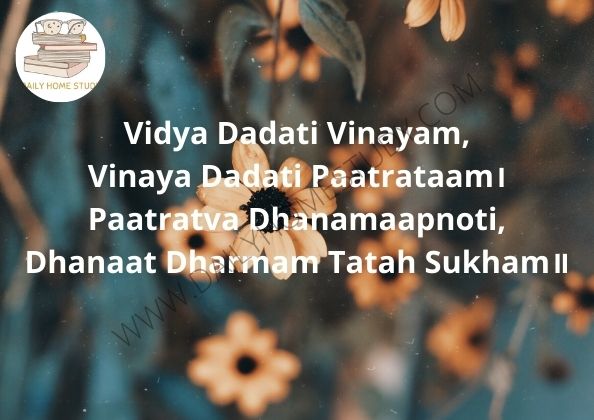
Lakṣaṇam Manasa Sloka Meaning in English Translation | DailyHomeStudy
Charak Samhita, the foundation of Ayurveda, explains the division of constituent factors. A person is known to possess 24 entities such as mind, 10 sense organs, 5 sense objects, and prakrti (matter) consisting of 8 entities (Ayakta, mahat, ahankara and 5 tanmatras). And in this there is description of the nature and actions of the mind.
The nature of the mind is defined as: the entity which, even on contact with self, sense organs and sense objects, is responsible for production or otherwise of knowledge by it’s attending or non-attending respectively. Subtleness and oneness are known as 2 qualities of mind.
While the actions of the mind are: The object of thinking, analysing, reasoning, meditating, determination and whatever, is to be perceived by mind is its object. Action of mind consists of : control over senses, self-restraint, reasoning, analysing. Beyond that is the jurisdiction of Buddhi (intellect).
We have specifically covered the verse which covers the nature of the mind.
lakṣaṇam manasa Sloka Source
Charak Samhita ShariraSthana 1.18
lakṣaṇam manasa: Sloka
lakṣaṇam manasa: jñānasya abhāva: bhāva eva vā।
sati hi ātma indriyārthānāṃ sannikarṣeṇa eva vartate॥
lakṣaṇam manasa: Sloka Meaning in English
English Translation
Mind is defined as: the entity which , even on contact with self, sense organs and sense objects, is responsible for production or otherwise of knowledge by it’s attending or non-attending respectively. Subtleness and oneness are known as 2 qualities of mind.
lakṣaṇam manasa: meaning in one sentence
The Nature of The Mind
Word to Word Meaning
vidyA = knowledge; from root vid, there are many words.
sam-vedana = to know together, know same as other, sympathy)
A-vedana = announcement, to be let known
ni-vedana = request, inform
vid = to be present, as in vidyamAn
dadAti = dad verb, to give. -da as suffix makes adjectives
vinayaM = training, discipline, cultured mannerism (from training), humbleness.
root ‘nee’ which means to take (away).
e.g. netA = leader; who leads, takes (to the goal)
abhinetA = actor, who leads us emotionally through the story by his/her acting
neeti = policy, that which leads (the nation, organization, person to their goal)
vinayAt = from discipline, humbleness
yAti = comes. yA = movement
AyAta = import (coming in)
niryAta = export (going out)
yAtAyAta = traffic, transportation
pAtratAM = worthiness
pAtra = container, vessel, recipient
a-pAtra dAna = charity to an undeserving, unworthy
pAtratvAt = from worthiness
dhanaM = wealth, money
dhanAt = from wealth (-At suffix meaning from)
dharmaM = the right thing, charity, good deeds, duty [NOT religion]
tataH = from that
sukhaM = happiness, opposite of sorrow, lack of pain. cf. sukhAsana = the comfort posture.




